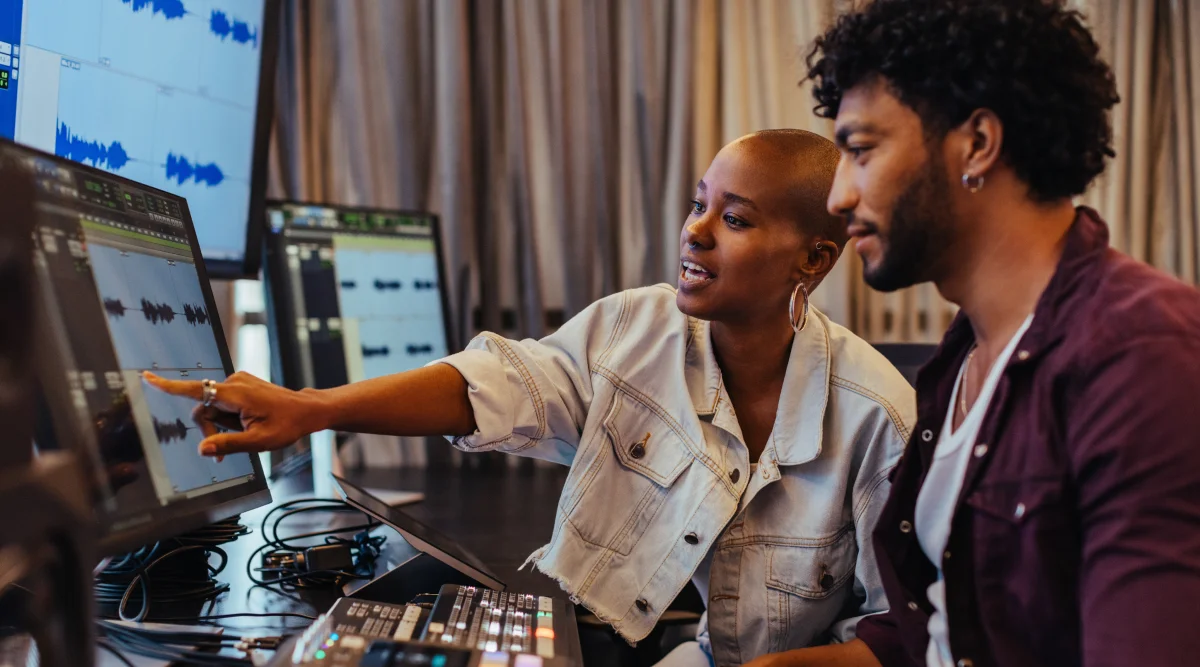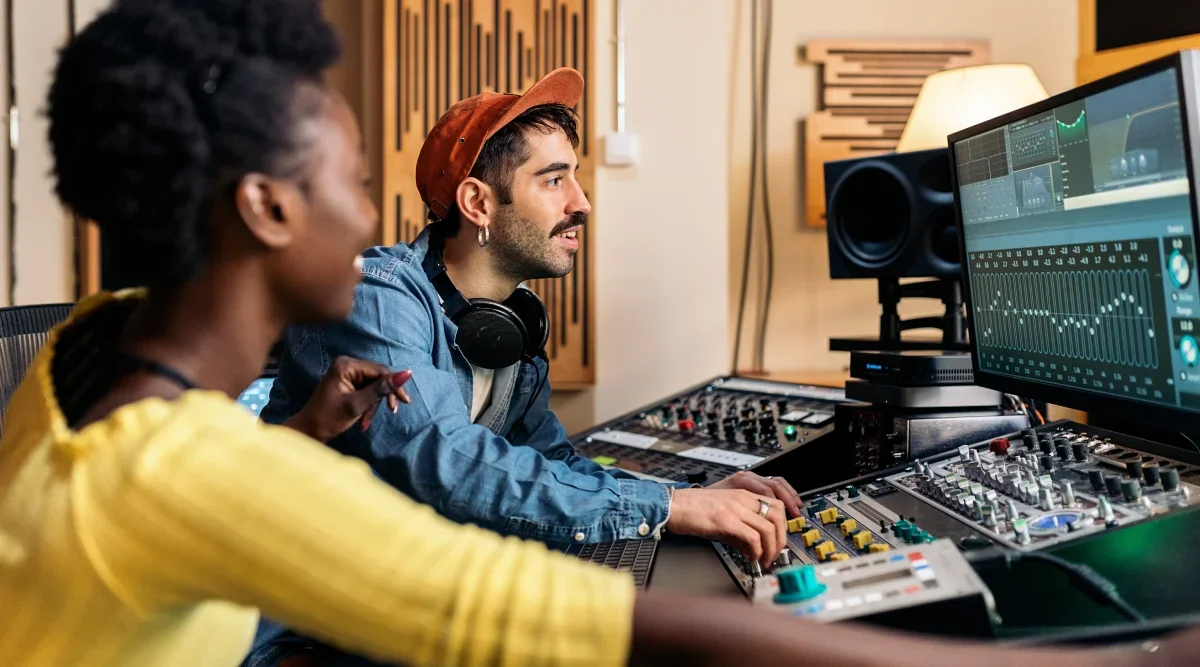Federal copyright law protects published and unpublished original musical works, including song lyrics, compositions, and certain types of recordings. A music copyright exists as soon as the musical composition has been created in a fixed format (e.g., sheet music), or “tangible form” such as an audio recording. Copyright registration adds an extra layer of legal protection for your intellectual property and tells the world that you are the creator who brought the work into existence.
Registering a copyright for your music is relatively easy and inexpensive, but there are a few things you need to know first.

Rights of copyright owners
If writing and recording music automatically gives you ownership rights, why bother getting an official copyright? If you don't register an official copyright for your music, it can be more difficult to assert your rights in a copyright infringement claim.
A copyright is about more than preventing someone else from copying your work. Securing a copyright for your own music means that if someone else wants to record and distribute your music, sample it, or perform it, that person needs your permission. When musicians don't secure a copyright for their music, they can close themselves off to potential revenue streams from other people wanting to perform or use their work.
What music is eligible for copyright?
There are many misconceptions about what can and can't be registered for copyright protection when it comes to music. It's sometimes difficult to separate the elements of music from each other. Here are some guidelines.
You cannot copyright:
- Song titles. As any search in your favorite music platform will reveal, many songs share the same or similar titles.
- Chord progressions. To copyright these on their own would be akin to a novelist trying to copyright the alphabet.
- Incomplete pieces. You can't copyright a fragment of a piece of music. It needs to be a complete piece.
You can copyright:
- Lyrics. The lyrics to a song will be protected as part of the general copyright for a piece, but you can also copyright complete song lyrics on their own, even if they haven't been set to music.
- Complete works. You can copyright songs, jingles, incidental music, compositions—these are just some of the many types of music that are eligible for copyright. You can even register multiple songs on an entire album or recording collection utilizing the group registration option.
Benefits of copyright registration
While musicians don’t have to register sound recordings and music with the U.S. Copyright Office, it gives them additional legal protections:
- It creates a public record of the copyright and the date it was created.
- It allows the copyright owner to file an infringement suit in federal court if someone infringes upon their copyright and gives them more leverage in legal action.
- If someone infringes on the music copyright, the copyright owner can recover legal fees and damages based on the date they registered the copyright.
- If the music copyright is registered within three months or prior to a copyright infringement, the copyright owner can receive attorney’s fees and statutory damages, which can range between $750 and $30,000 for each infringement.
How to copyright music in 7 steps
If these benefits sound appealing to you, you can copyright your music in seven easy steps, all from the comfort of your home:
- Create an account. Head over to the official U.S. Copyright Office (USCO) registration portal. Click the blue button that says “Log in to the Electronic Copyright Office (eCO) Registration System.” At the bottom of the grey box, select the option to register as a new user, and enter all of the required information.
- Choose the registration type. Once you’ve entered all your basic information, it will ask you to choose a registration type. Select the option for musical works or sound recordings.
- Complete the application. Fill in all the required information about your music. You will need to know when it was created and the publication status. If you are filing for someone else, you will also need basic information about the author (name, birthdate, address, etc.).
- Pay the filing fee. For a single author to file electronically, the fee is a nonrefundable $45. As these fees are subject to change, check the USCO website for the most up-to-date information. You can pay with any debit/credit card or an ACH payment through pay.gov. If you plan to write and copyright more music, it may be worth it to set up a deposit account where you can keep a balance for future fees.
- Upload a copy of the work. Using one of the approved file types, upload the “tangible form” of your work—that is, the completed recording, a copy of sheet music, a lyric sheet, or whatever tangible representation you have of your work.
- Confirm and submit. To avoid correction fees, confirm that all your information is correct. It can be helpful to get another person to look over it for you. When you have correctly answered every required question, you can confidently click “Submit.” You’ll receive an email confirmation that they received your request.
- Wait for USCO to respond. It can take up to three months for you to get your official registration, but your copyright is effective from the moment you submit your completed application. So while you wait, sit back, relax, write some new tunes, and know that your music is legally protected against infringement.
To make the process even easier, you can use an online company to file your copyright application and handle the paperwork.
After you apply for registration, the Copyright Office will keep you notified of your application status. Successful registration means exclusive rights and much greater protections over your music.
What is the length of a copyright?
Once you have copyrighted your music, the copyright is good for the rest of your life—and then some. Here are the official terms:
- For musical works created on or after Jan. 1, 1978, the work is protected from the date that it was created, plus an additional 70 years after the copyholder’s death.
- For musical works created before Jan. 1, 1978, but not published or registered prior to that date, the copyright period is the same as for works created on or after Jan. 1, 1978.
- For anonymous or pseudonymous work, the copyright lasts for 95 years.
How much does it cost to copyright my music?
As of this writing, the filing fee for a single work with a single author is $45 if you register online. If you co-wrote your music with someone else, you’ll need to fill out the standard application, which is $65 online. If you want to register by mail, the fee is $125. See the USCO’s official fee schedule for the most up-to-date fee information.
You may also choose to pay an attorney or service to file the copyright registration for you. LegalZoom will register your copyright (and double check your application) for $114 + filing fees.
Protect your music with LegalZoom
LegalZoom will help you file the paperwork you need to register a copyright. Start by answering a few questions about your music online, and we’ll check your answers for consistency and completeness. Then, we assemble and file the paperwork with the Copyright Office.
We also offer attorney-drafted contract templates that help you manage your copyrighted music. Whether you want to license it or transfer the copyright to someone else, our templates will help you do it right.
FAQs
What are the limitations of a copyright?
The “fair use” doctrine permits limited use of copyrighted material without infringing on the copyright holder’s rights. Examples include: comment or criticism, educational uses, news reporting, and parody.
Can I copyright a remix?
You can copyright a remix as a derivative work, meaning you have to have permission from the original author, and you can only copyright your additions. So if you add new lyrics, you can copyright those. If you add a cool guitar riff, you can copyright that. You just can’t take credit for anything that was in the original music.
Can I copyright a cover song?
While you cannot copyright the composition of the original song, you can copyright your own recording as long as you have a mechanical license. The exception would be if you are only releasing it on streaming services like Spotify. If you are publishing the cover to YouTube, you need a synchronization license.
Does my music copyright apply internationally?
While there are treaties in place to help protect original works overseas, enforcement largely depends on the laws in other countries. If someone in Italy, for example, infringes on your copyright, you would have to file the suit against them in Italy, and they would be prosecuted under Italy’s laws.
What is the Music Modernization Act?
The Music Modernization Act (MMA) updates copyright law to be more equitable for digital music creators. Among other significant changes, it designates the Mechanical Licensing Collective Inc. to collect and distribute mechanical royalties. Songwriters and musicians can register online to receive royalty payments.
Roberta Codemo contributed tho this article.


